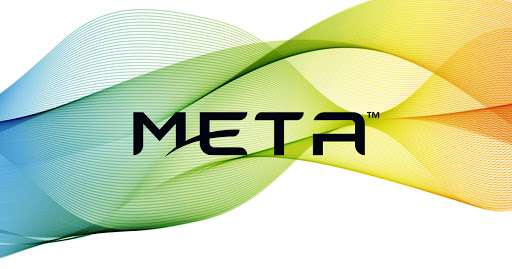A week after Halifax advanced materials-maker Meta Materials swapped out its CEO, the company’s stock price woes continue to worsen, despite the recent dismissal of a class action lawsuit filed against it in New York.
The one-time unicorn said it had “removed” co-founder and longstanding CEO George Palikaras Oct. 17, replacing him with turnaround artist Jim Fusaro following public disagreement between Palikaras and other senior leadership over how to respond to share price volatility. The stock has since slid from above 20 US cents to just under 13 US cents.
The volatility stands to jeopardize Meta’s Nasdaq listing, since the exchange has a minimum bid price of one American dollar. The company’s shares have been below that threshold since January, and in August, the Nasdaq gave management until Feb. 21 to boost the price or be delisted.
“(Fusaro) brings a wealth of leadership experience and a proven track record of driving high revenue growth,” said board chair Jack Harding in a statement last week. “In his new role, Jim will be responsible for overseeing the strategic direction of the company and accelerating its commercial production.
“We are grateful for George (Palikaras)’s hard work, dedication, and valuable contributions during his tenure. His leadership has been instrumental in laying the foundation, and the board wishes him all the best in his future endeavors.”
Meta describes itself as having developed a platform technology for advanced materials development, particularly materials that refract or filter light, and intends to partner with incumbent players across a range of industries. Its first commercial venture was making anti-laser coatings for Airbus cockpits, and it has since revealed interests in an array of projects.
When it listed on the Nasdaq in 2021 via a reverse acquisition of a Texas energy company, Meta briefly became one of the most valuable businesses in Atlantic Canadian history, enjoying a market cap of about US$2.2 billion — though that figure has since dwindled to just US$61.8 million.
One possible factor in the share price decline is that in each of the two years since its original Nasdaq listing, Meta has sold sizeable tranches of additional stock. The original reverse acquisition netted the company about US$160 million, and the following year it sold another US$50 million worth of shares, meaning it was responsible for the largest equity funding deal in Atlantic Canada two years in a row. This April, the company said it would sell an additional US$25 million of shares.
Some of the money raised has gone towards acquisitions, including US$48.5 million last year for Devens, Mass.-based Optodot Corporation, which specialized in advanced materials for lithium ion batteries, as well as $90.8 million for British Columbia-based Nanotech Security, which uses nanotechnology to create security holograms for bank notes and government ID cards.
Shareholders did receive some good news earlier this month when the U.S. District Court for the Eastern District of New York granted Meta’s request to dismiss a class action lawsuit that had claimed it misled investors about the reverse acquisition deal from two years ago.
“We appreciate the court's thorough examination of the complaint and the Company's motion,” said Palikaras at the time. “Our priority remains serving our shareholders and continuing our work in the field of advanced materials and nanotechnology towards developing solutions that make a difference in people's lives.”
In a statement, Meta did not say why Palikaras was ousted, but earlier this year he seemingly butted heads with other company leadership on social media.
“Once again there are discussions on R/S,” Palikaras posted on X.com, formerly Twitter, according to press reports. He was referring to a reverse split, which would consolidate outstanding shares in the company as a way to boost the trading price. “Look up my last response which still holds.
"There is not going to be an R/S for being below the threshold for as long as i am the CEO of $MMAT (Meta’s ticker symbol).”
Palikaras’s post prompted Meta to file an 8-K form — usually used to disclose major news — with the United States Securities and Exchange Commission, distancing itself from his Tweet, which has since been deleted.
“The Company disavows the twitter (sic) statement by George Palikaras regarding whether the Company may decide to implement a reverse split in order to comply with Nasdaq continued listing requirements,” said Meta in the 8-K, dated March 9.
Palikaras’s replacement, Fusaro, has led a host of high-tech companies, most recently New Mexico-based Array Technologies, which sells equipment for keeping solar panels in utility-scale energy projects angled towards the sun as it moves throughout the day. When Fusaro became CEO in 2018, Array was operating at a loss, but he returned it to profitability and subsequently led its US$675 million initial public offering.
Meta itself posted a net loss of more than US$293 million for the quarter that ended June 30, with just US$13.9 million of remaining cash and cash equivalents. By comparison, its losses for the same period the year prior were slightly under US$21 million.
"META has strong talent, a broad nano technology platform and an impressive IP portfolio," said Fusaro in a statement. "I look forward to building on this foundation and leading the company at this pivotal stage of growth."










